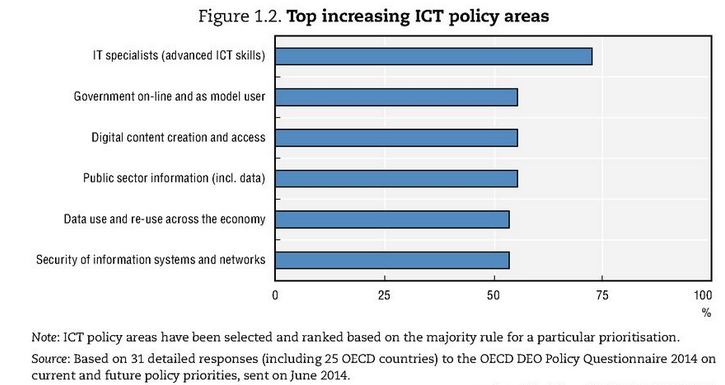Krugman, Paul, (2015), “The Downside of Labor Mobility”, NY Times blog, 14 Αυgust The theory of optimum currency areas is one of those old-fashioned pieces of macroeconomics — like IS-LM, the concept of the liquidity trap, and the theory of secular stagnation — that has turned out to be extremely relevant and useful to the world since 2008. So this is a version of Mark Thoma’s dictum that new economic …Read More
Wolfgang Schäuble, Debt Relief, and the Future of the Eurozone
Mody, Ashoka, (2015), “Wolfgang Schäuble, Debt Relief, and the Future of the Eurozone”, Bruegel publications, 6 August The reason Schäuble is concerned is that the carefully constructed but fragile crisis management system—intended to insulate Germany from paying the bills of others—is now under threat. If Greece creates a precedent, then either the crisis management system goes, or a transfer union is effectively in place, with Germany on the hook. Hence …Read More
A New Approach To Eurozone Sovereign Debt
Varoufakis, Yanis, (2015), “A New Approach To Eurozone Sovereign Debt”, Social Europe Journal, 17 August Greece’s public debt has been put back on Europe’s agenda. Indeed, this was perhaps the Greek government’s main achievement during its agonizing five-month standoff with its creditors. After years of “extend and pretend,” today almost everyone agrees that debt restructuring is essential. Most important, this is true not just for Greece. Relevant Posts Horváth, Bálint, Huizinga, Harry, Ioannidou, Vasso, (2015), “European …Read More
Still vulnerable: the euro area’s small and medium-sized banks
Mody, Ashoka, Wolff, Guntram, (2015), “Still vulnerable: the euro area’s small and medium-sized banks”, Bruegel publications, 14 August The European Central Bank’s 26 October 2014 publication of the results of a comprehensive assessment of 130 banks under its oversight (ECB, 2014) identified problems in terms of non-performing assets and capital shortfalls. Nevertheless, the outcome brought a sense of relief to financial markets. Unlike stress tests conducted in July and December …Read More
Low inflation in the Eurozone
Siviero, Stefano, Neri, Stefano, (2015), “Low inflation in the Eurozone”, Voxeu, 15 August EZ inflation has been falling steadily since early 2013, turning negative in late 2014. This column surveys a host of recent research from Banca d’Italia that examined the drivers of this fall, its macroeconomic effects, and ECB responses. Aggregate demand and oil prices played key roles in the drop, which has consistently ‘surprised’ market-based expectations. Towards the end of 2014 …Read More
Explaining The EU’s Politics Of Austerity
Melloni, Nicola, (2015), “Explaining The EU’s Politics Of Austerity”, Social Europe Journal, 17 August What is the logic behind austerity? The standard explanations given during the last five years do not hold solid ground. Many – including famous economists and central bankers – had supported budgetary cuts to restore market confidence. Markets, however, were hardly impressed: operators care about profits – usually associated with growth – and cuts in the …Read More
Saving the euro at all costs could lead to the hollowing out of European democracy
Ruser, Alexander, (2015), “Saving the euro at all costs could lead to the hollowing out of European democracy”, LSE blog, 15 August Abraham Lincoln defined democracy as government of the people, by the people, for the people. Markets, however, he chose not to mention at all. It may be that Mr Lincoln was dealing with an idealistic, out-dated definition of democracy.A brief look at the recent discussion about the viability of democracies …Read More
Iceland, Greece and political hectoring
Danielsson, Jon, (2015), “Iceland, Greece and political hectoring”, Voxeu, 13 August The Greek and the Icelandic crisis have much in common, not the least the heavy pressure from foreign countries and the hectoring from their public officials. In Iceland and in Greece this was counterproductive, hardening the opposition to any settlement. The will to reform needs to come from within, and the sooner the Troika realizes this, the easier it will be …Read More
OECD Digital Economy Outlook 2015
OECD, (2015), OECD Digital Economy Outlook 2015, OECD Publishing, Paris, July. The digital economy now permeates countless aspects of the world economy, impacting sectors as varied as banking, retail, energy, transportation, education, publishing, media or health. Information and Communication Technologies are transforming the ways social interactions and personal relationships are conducted, with fixed, mobile and broadcast networks converging, and devices and objects increasingly connected to form the Internet of things. This …Read More
Rising inequality in the Eurozone underlines the need for a fiscal union
Sawicki, Dawid, (2015), “Rising inequality in the Eurozone underlines the need for a fiscal union”, LSE blog, 3 July. How has inequality within Eurozone states changed during the pursuit of Economic and Monetary Union? Dawid Sawicki writes that in the majority of Eurozone members income inequality has increased substantially since 1990. He argues that this is partly the result of a lack of automatic stabilisers within the Eurozone that can compensate …Read More





